Doing business
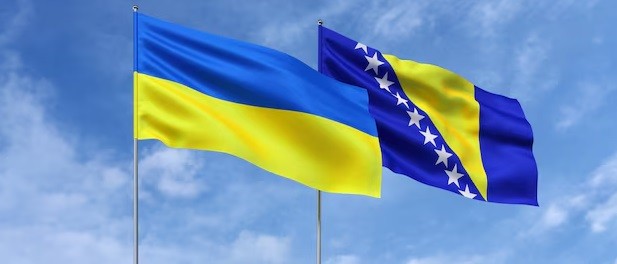
The Federation of Bosnia and Herzegovina, as a member of the international community, supports Ukraine in the war against russia at the political level and by providing humanitarian aid. President of Ukraine Volodymyr Zelenskyy expressed gratitude to the Chairman of the Presidency of Bosnia and Herzegovina Željko Komšić and member of the Presidency Denis Bečirović for this assistance during their visit to Kyiv in August 2023.
Bosnia and Herzegovina supports Ukraine in the international arena, in particular, by joining the European Union’s sanctions policy against russia, and voting for UN General Assembly resolutions supporting Ukraine’s territorial integrity and condemning russia’s aggression.
In addition, the government and civil society organisations of the country have provided humanitarian support to Ukraine, particularly to refugees and war victims. Although the amount of assistance from Bosnia and Herzegovina is limited because of the country’s internal resources, the existing initiatives demonstrate solidarity and support for the Ukrainian people in this challenging time.
NGOs and volunteers in Bosnia and Herzegovina are actively collecting humanitarian aid for Ukraine. In particular, the “New Ukraine” organisation is engaged in providing humanitarian aid to the Ukrainian population and raising awareness of Ukraine in the world.
Since the beginning of the war, the Bosnia and Herzegovina Automobile Club (BIHAMK) has provided free roadside assistance and evacuation for Ukrainian refugees, as well as raised funds and essential humanitarian goods.
In Bosnia and Herzegovina, there are charitable and humanitarian organisations that provide assistance to Ukrainians affected by the war with russia, ensuring that they have the necessary resources and services. Here are some of them:
Foreign trade between Bosnia and Herzegovina and Ukraine is relatively small, but has the potential to grow. In 2023, the foreign trade turnover between the countries amounted to $39.4 million, which is 6% more than in the pre-war period. The basis of trade relations is the export of agricultural products (edible fruits and nuts, oilseeds, milk and dairy products), pharmaceuticals, as well as ferrous metals and products from them. Imports of products that are of interest to enterprises from Dnipropetrovsk region include inorganic chemicals, pharmaceuticals, machinery and equipment, polymeric materials, etc.
Economic cooperation between Ukraine and Bosnia and Herzegovina can be deepened through the free trade area with the EU, which both countries are members of. Expanding trade agreements and joint economic initiatives will help to increase bilateral trade. It is worth noting that in 2024, Bosnia and Herzegovina opened its market to imports of Ukrainian poultry meat, which indicates the development of trade relations between the countries.
Bosnia and Herzegovina also remains a promising trade partner for Dnipropetrovsk region. The growing level of partnerships is evidenced by the bilateral analysis of foreign trade. The foreign trade turnover between the countries increased by 19% compared to the pre-war period.
Companies across the country are most interested in ferrous metals and products made of them, glass and glass products, railway locomotive parts, plastics and polymeric materials, etc. The volume of goods exported from Dnipropetrovsk region totalled $1.3 million. The region’s share of exports to Bosnia and Herzegovina is 8.1% of the total Ukrainian figure.
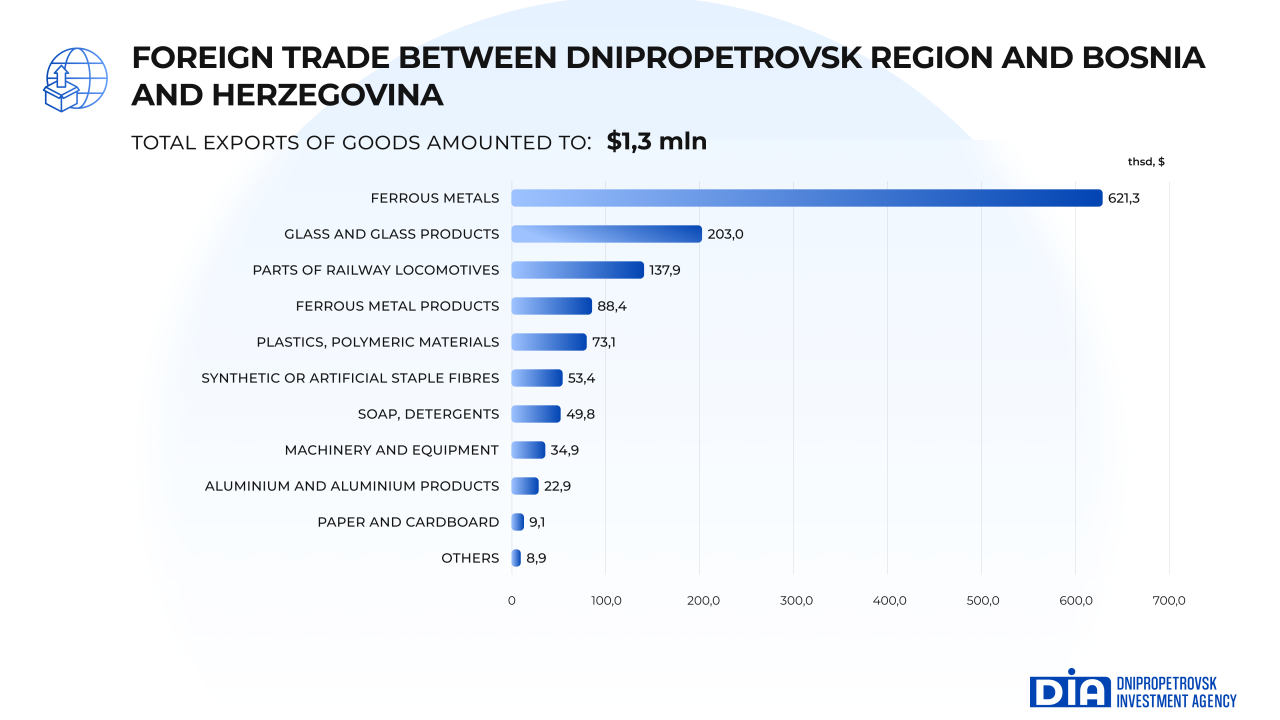
10 enterprises in the Dnipropetrovsk region exported their products to the Bosnian market, including metallurgical, processing and machine-building companies.
TOP 5 exporters by volume of exported products are as follows:
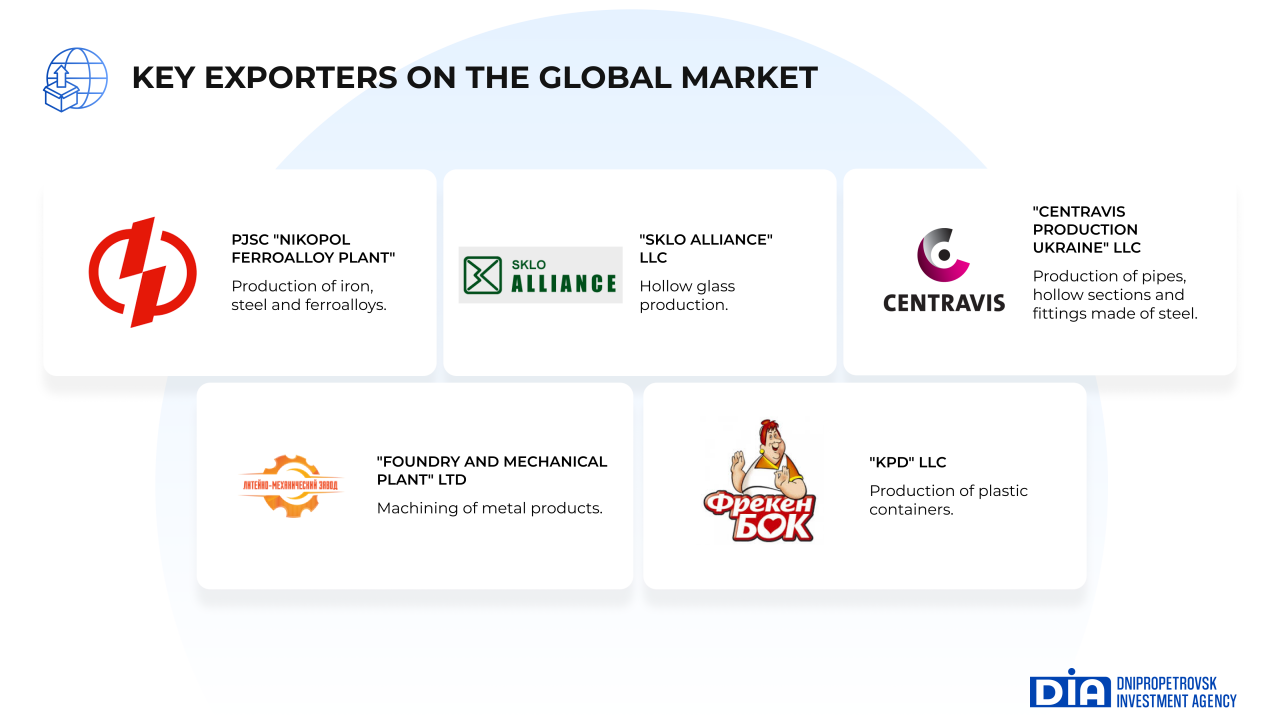
In turn, 27 importers in the region bought Bosnian goods among the most important products, namely inorganic chemicals, pharmaceuticals, essential oils, etc. Imports of goods from Bosnia and Herzegovina to Dnipropetrovsk region increased by 29.7% to $9 million. The region’s share is 38.5% of Ukraine’s total imports from Bosnia and Herzegovina.
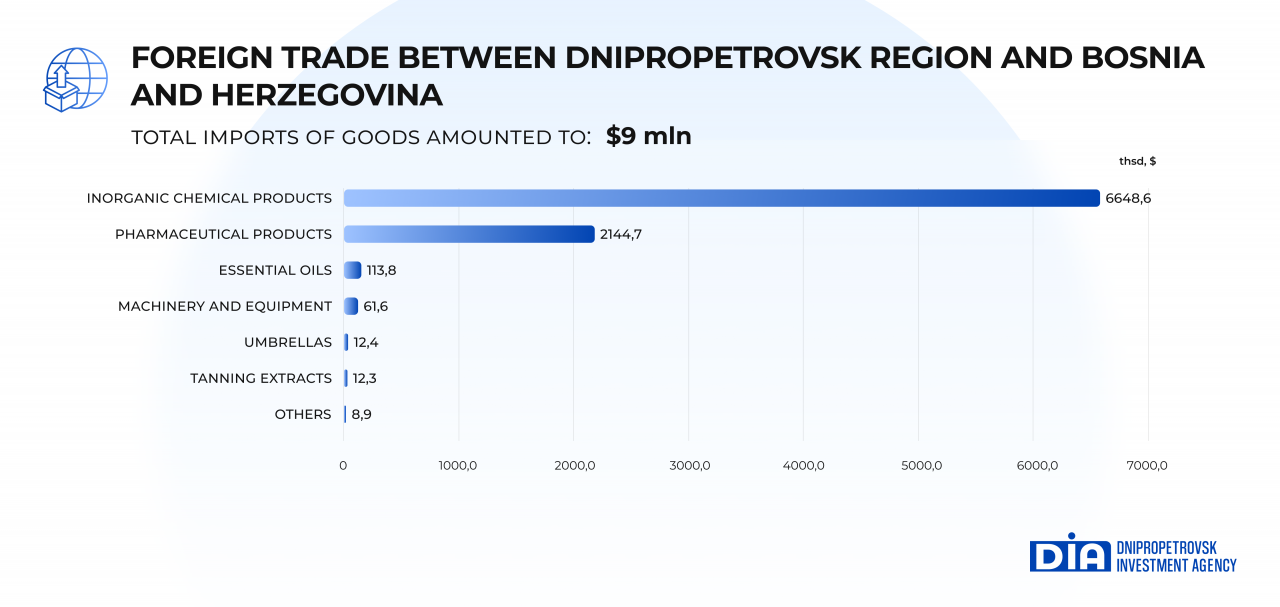
TOP-5 importers by volume of imported products are as follows:
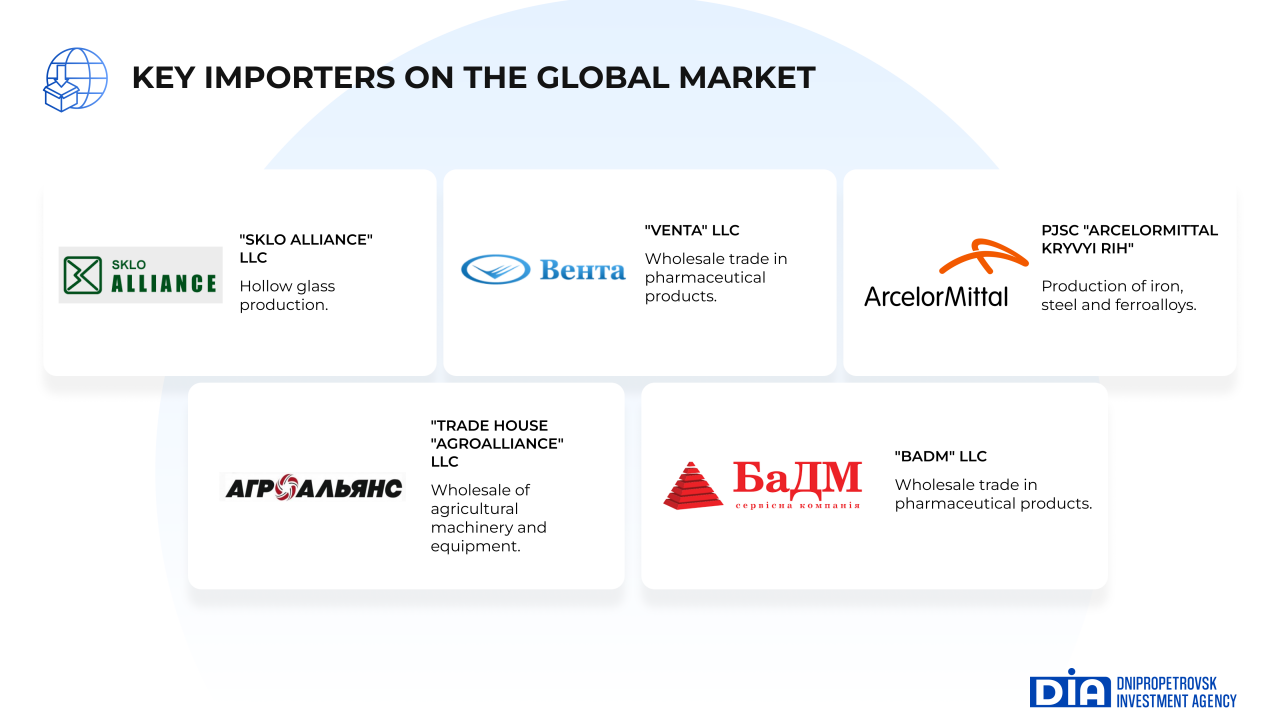
Import operations were mainly carried out by enterprises of the chemical and processing industries and trade companies.
Source: information for the article was taken from open online sources